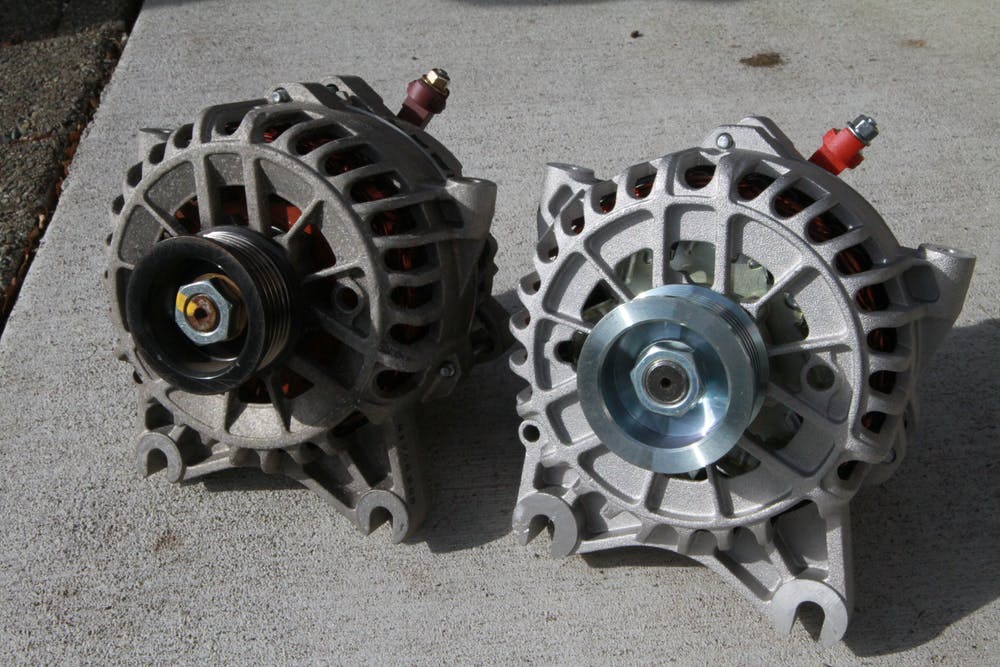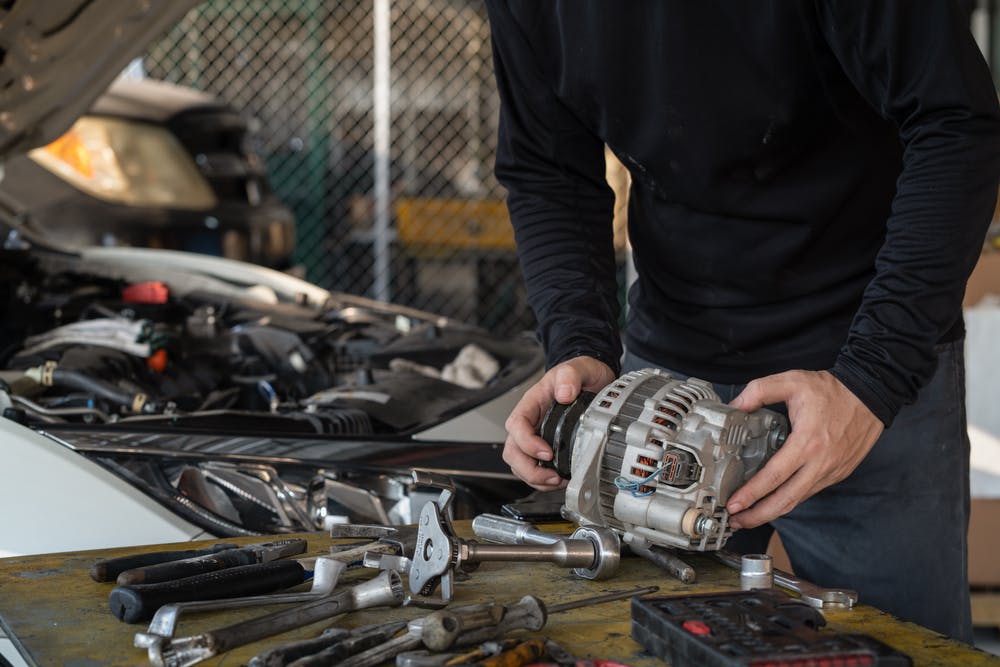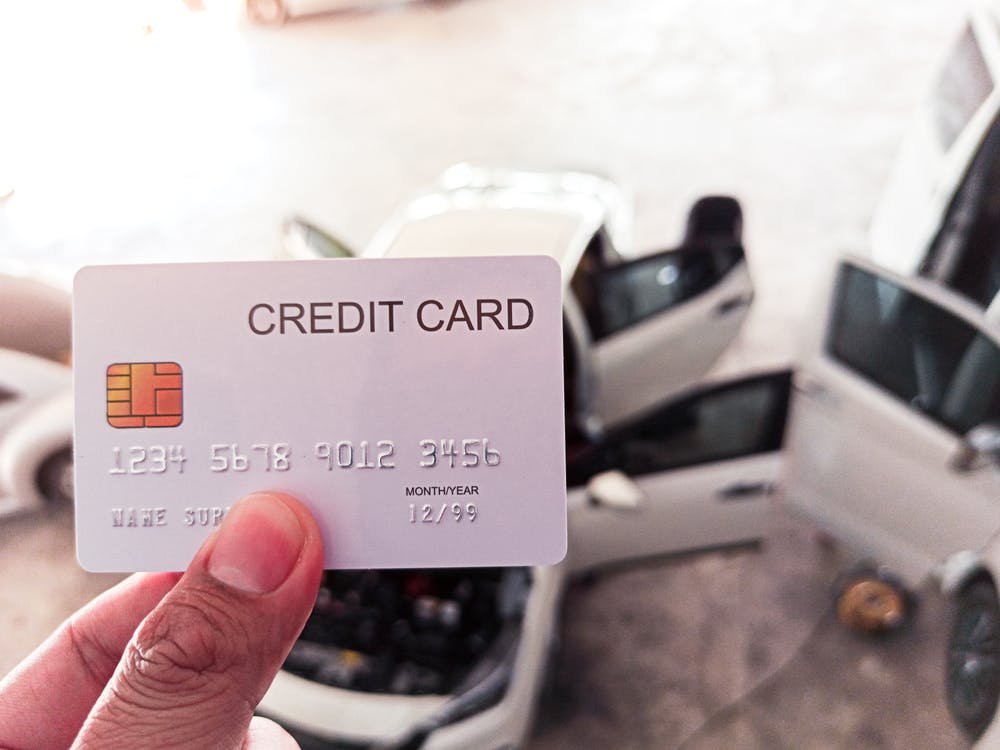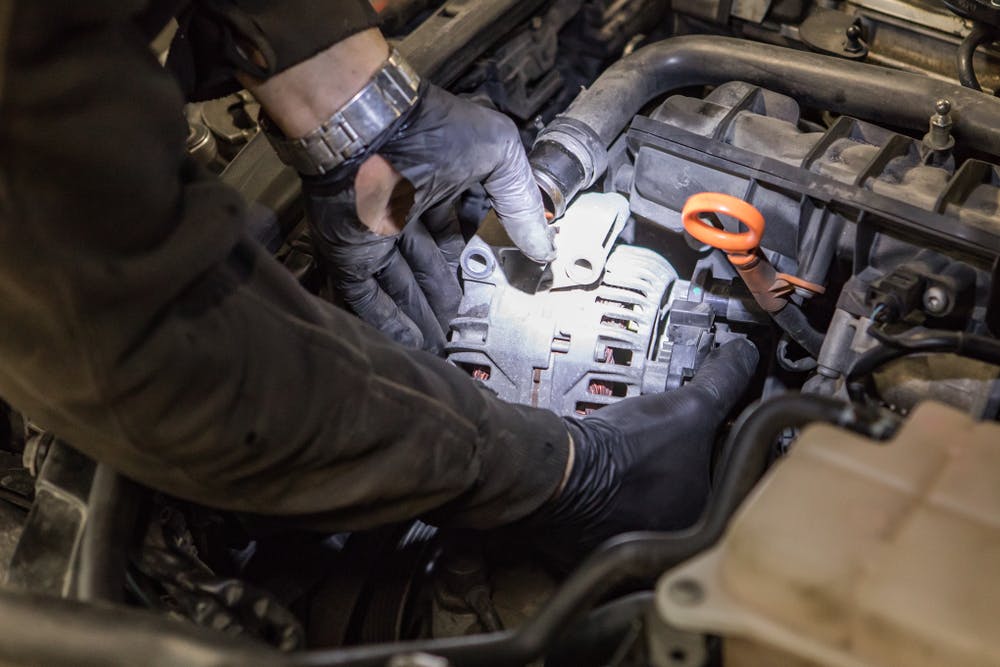How much does it cost to replace an alternator?

Alternator prices vary greatly between brands. For instance, a Bosch alternator, or an OEX alternator will usually cost more than most other brands. Moreover, an LS1 alternator will usually be more expensive than a Hilux alternator. In short, prices depend on the brand, as well as on the vehicle make and model.
Nonetheless, a "ballpark" price for a new 12-volt alternator for a compact car would be between $200 to $300. Prices for high-end, luxury vehicles with high power demands could run from about $1000 to about $1300.
However, price should never be the only factor to consider when you purchase a new alternator. For instance, a high-quality alternator bought from a reputable dealer will provide reliable service for many years. Cheap versions can fail after a few months.
Can I use a reconditioned alternator?

Yes, you can absolutely replace a bad alternator with a rebuilt unit. However, to avoid trouble down the line, you should keep some things in mind-
With rebuilt or reconditioned alternators, you often only get what you pay for, because “rebuilt” and “reconditioned” are two different things. Here is how this works-
Rebuilt alternators
A rebuilt unit is usually one in which only the defective parts have been replaced. Thus, you might buy an alternator with a new rectifier, but the old rotor, stator, and voltage regulator are still present. Moreover, warranties on rebuilt units rarely exceed 30 days- if you get a warranty at all.
Reconditioned alternators
With a properly reconditioned alternator, you typically only get a used casing. Everything else is new, often including the drive pulley, so you get a -
- new rotor
- new stator
- new rectifier
- new alternator regulator
- alternator brushes (if fitted)
- new bearings
In practice, you get new parts built into an old casing. Therefore, you will usually get a warranty that compares well with the warranty of a new, out-of-the-box alternator.
However, there are exceptions to both of the above rules. Therefore, we recommend that before you buy a rebuilt/reconditioned alternator, you make sure what you are getting for your money. You can do this by dealing only with reputable dealers.
How much does an alternator replacement cost?

Alternator replacement costs depend on several factors, such as-
- the brand you buy
- and the make and model of your vehicle
Moreover, in some cases, you may also need to replace the drive belt and its tensioner. This can add up to about $200 or so to the final invoice. Additionally, dealership workshops usually have higher per hour labour charges than independent workshops.
Generally, replacement costs can run from about $150-$300, to about $700-$800 if you have a luxury vehicle. Note that these price estimates do not include the cost of the alternator. Nor do they include the cost of other parts like alternator belts and tensioners.
In practice, it is very difficult to provide accurate alternator replacement cost estimates. Therefore, we recommend that you Find a Mechanic to find a specialist workshop near you. Specialists can give you replacement cost estimates that include all possible charges and costs.
Can I replace my own alternator or alternator parts?

In some cases, it might be possible for home mechanics to replace the alternator on their vehicles on a DIY basis. However, there is a high likelihood of serious short circuits occurring when battery cables are disconnected. Therefore, we do not recommend that novice home mechanics attempt an alternator replacement.
Moreover, it is often very difficult, if not always impossible, to remove the alternator on most modern vehicles. This is because you may have to disassemble or remove other engine parts/components. Depending on the vehicle make and model, these parts/components could include the following-
- Alternator belt and belt tensioner
- A/C compressor and/or A/C hoses
- Power steering pump and power steering hoses
- Intake air ducting or pipes
- Assorted wiring and/or vacuum lines/hoses
- Radiator hoses
Apart from the need to remove unrelated parts, you also need a memory-saving device. This is to preserve critical programming in one or more control modules when you disconnect the battery.
Also, remember that disconnecting the battery to prevent short circuits can cause trouble codes to set. Some codes might clear automatically when you next start the car. However, you may need a suitable diagnostic computer to clear some fault codes.
As a practical matter, then, we do not recommend that home mechanics attempt alternator replacements. The wiser option would be to find a professional mechanic near you to replace your alternator.
